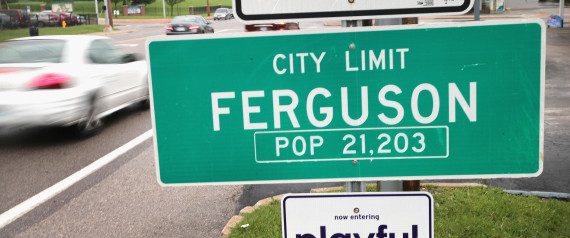By Ryan Reilly

WASHINGTON — An obscure arm of the Justice Department known as “America’s peacemaker” banned reporters and non-residents from two town hall meetings Monday in Ferguson, Missouri. The ban was enforced by Ferguson police officers, even though a city spokesman said local officials wouldn’t prevent outsiders from attending.
DOJ’s Community Relations Service, or CRS, a small government agency charged with conflict resolution, is mediating a series of meetings in the St. Louis suburb, which was rocked by protests after a police officer shot and killed 18-year-old Michael Brown last month.
Initially, a spokesman working for the city of Ferguson had promoted the meetings to the media. But CRS, which is “required by law to conduct its activities in confidence and without publicity,” didn’t want reporters or citizens from neighboring communities to attend.
“It’s their meeting,” Devin James, a spokesman for Ferguson, told The Huffington Post, referring to the DOJ agency. “They’re calling the shots. So they have the authority to shut it down, keep it open, moderate it, whatever. It’s pretty much going to be on them whether they decide to — using your terminology — ban or whatever. We’re not enforcing that.”
Photos from one of the events, however, showed Ferguson police checking IDs at the door. Authorities also ejected a Ferguson resident for recording the meeting, but allowed him to return when he promised to stop. A local Democratic committeewoman was temporarily barred.
The prohibition affects high-profile protesters who are not technically residents of Ferguson, but, rather, live in other towns in St. Louis County or in the city of St. Louis itself. One well-known protester named Johnetta Elzie, a 25-year-old who goes by @Nettaaaaaaaa on Twitter, said she wasn’t planning to attend either of the two meetings because she wasn’t a resident of the city. Elzie added that she didn’t know of many protesters who are actually Ferguson residents.
City Attorney Stephanie Karr told The St. Louis Dispatch that she does not believe that banning non-residents from the meetings would violate Missouri’s Sunshine Law, which requires government meetings to be opened to the public, because there wouldn’t be enough members of the city council at each meeting to reach the quorum needed to trigger the law.
The question of who can attend the town hall meetings is complicated by the major role that social media reporting played in the Ferguson protests. Several demonstrators, some of whom are Ferguson residents and others who live in the greater St. Louis region, gained significant followings on Twitter for posting updates and short videos during the protests as police used military-style equipment and tear gas on protesters over the course of several nights.
CRS, first formed under the Civil Rights Act of 1964, has been involved in calming tense situations in the wake of several high-profile conflicts in recent years. Notably, it helped ease tension in Sanford, Florida, following the death of Trayvon Martin.
The involvement of the DOJ agency is one of several federal responses to Brown’s death and the resulting protests. The FBI launched a civil rights investigation into the circumstances of Brown’s death, and officials with DOJ’s Community Orienting Policing Services office put officials around Ferguson in contact with other police chiefs who had handled large-scale demonstrations. Attorney General Eric Holder also visited the town and said he was struck by what he heard from residents there.
Both meetings are being held at churches in Ferguson: one at Wellspring Church and the other at Our Lady of Guadalupe Church. Another meeting was supposed to take place at City Hall, but that was cancelled just hours before the meeting on Monday afternoon.















